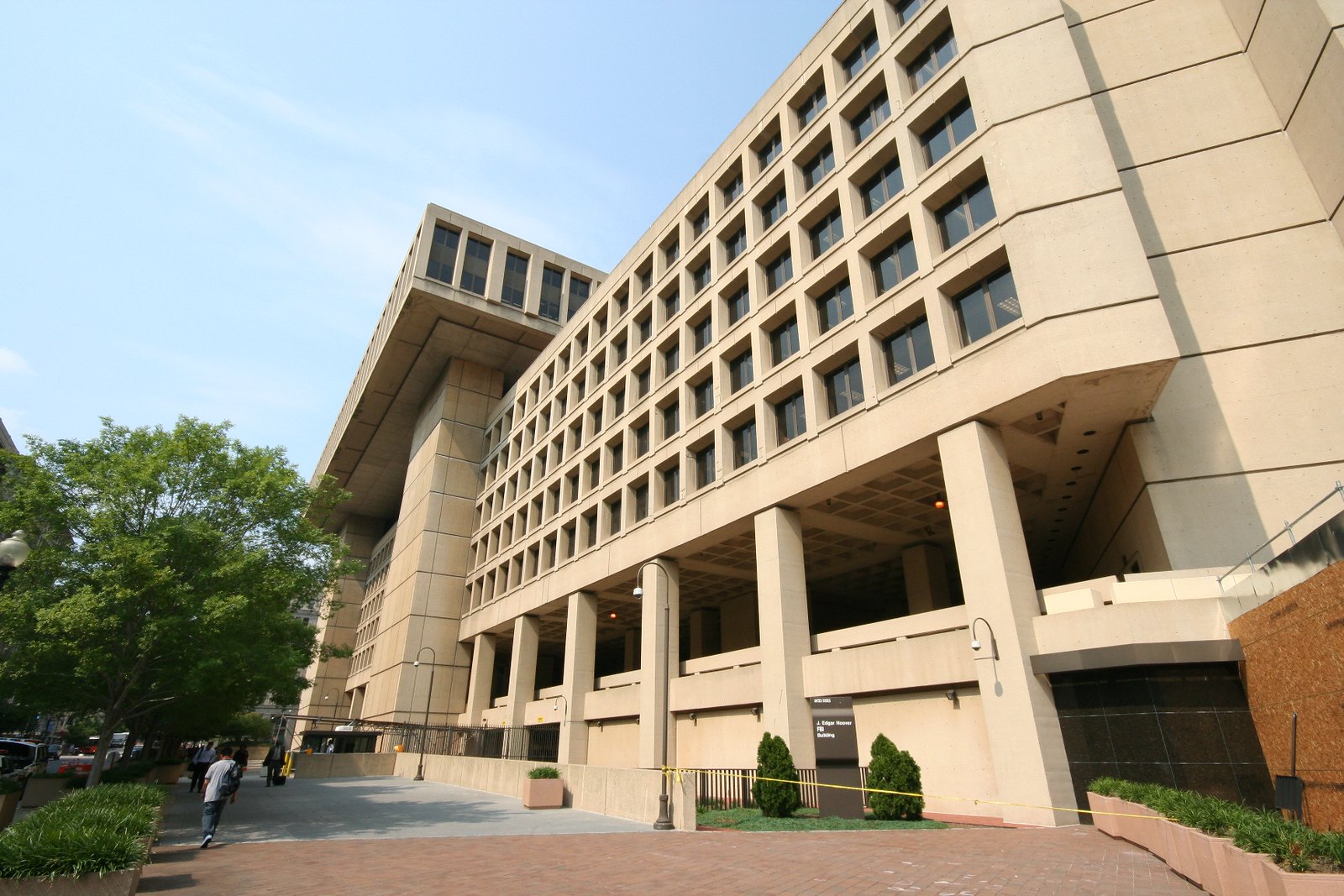The State Laws Governing Trump’s Power Grab in Michigan
Michigan law concerning the Board of State Canvassers suggests that President Trump’s effort to halt certification won’t amount to much.

Published by The Lawfare Institute
in Cooperation With

On Monday, Nov. 23, the Michigan Board of State Canvassers will meet to decide whether to certify the Michigan election, which President-elect Joe Biden won by 155,629 votes at latest count. After the state of Georgia having certified its election result last week, Michigan is now ground zero in President Trump’s efforts to throw out the legitimate result of the election.
Michigan’s Wayne County—home to the heavily Black and Democratic city of Detroit, which powered Biden’s win in the state—made headlines last week. On Tuesday, Nov. 17, the two Republican members on the Wayne County Board of Canvassers threatened to block election certification, citing concerns that the numbers of voters did not match the number of ballots in many Detroit precincts. They reversed course later that evening, but have since sought to “rescind” their certifications. According to a spokeswoman for Michigan Secretary of State Jocelyn Benson, “there is no legal mechanism for them to rescind their vote[.] Their job is done, and the next step in the process is for the Board of State Canvassers to meet and certify."
There are murmurs of similar lawlessness at the Board of State Canvassers meeting on Monday. Norman Shinkle, one of the two Republican members of the statewide board, told the Washington Post that he is leaning towards asking for a delay in the certification vote and calling for an audit—citing “potential problems” with the election process and debunked claims that Dominion Voting Systems, a voting machine manufacturer, deleted thousands of Trump votes. Shinkle told the Post that his duties as a board member go beyond certifying the election and require him to “check into some of these [unsubstantiated] accusations.” He has reportedly been bombarded with phone calls and emails from Trump supporters urging him not to approve the election results.
So will this effort be successful? Below is a brief primer on the relevant state law governing the Board of State Canvassers. It doesn’t look good for Trump.
What is the Board of State Canvassers?
Article II, Section 7 of the Michigan Constitution establishes the State Board of Canvassers, and specifies that the board shall be bipartisan and consist of four members. State law specifies that members of the board are appointed by the governor, confirmed by the state Senate, and serve for four years. The governor selects an appointee from a list of candidates provided to her by the state central committees of “each of the major parties.”
The board derives most of its authority from a collection of state statutes. It is to canvass—or tally—votes and determine the result of elections for president and vice president. The board also performs a host of other functions, including tallying and certifying the result of state and local elections and determining the sufficiency of petitions for statewide ballot proposals and measures to amend the state constitution.
The Board of State Canvassers works closely with local election officials to certify the results of an election. First, a county board of canvassers—for example, the Wayne County Board of Canvassers—tallies the results of the election in its jurisdiction. The county board then forwards its results to the Board of State Canvassers, which tabulates votes cast for candidates from all the county boards of canvassers, certifies the statewide result—or it least, it does so in ordinary times—and delivers “the statement and certificate of determination” to the secretary of state.
It’s the last part of this process that Shinkle seems to be targeting: by making certification contingent upon an audit, he threatens to delay certification of the results of the presidential election, as well as other state elections.
Can the Board Delay Certification?
The case law on whether the Board of State Canvassers has the power to delay final tabulation and certification of a presidential election is, perhaps unsurprisingly, pretty thin. But Michigan state officials and candidates for elected office have sued state canvassers for more than a hundred years, and that line of precedent suggests that Shinkle is on tenuous legal ground.
The Michigan Supreme Court has held repeatedly that a canvassing board wields purely ministerial powers. A board may, and indeed must, tabulate the votes submitted by the counties, but “it has no power to go behind the returns and recount the votes.” The state Supreme Court has affirmed this principle even in the face of allegations that the “election law of this State was most grossly violated.” So even if Shinkle’s allegations of massive voter fraud were true—and it’s worth repeating that there is no evidence that that’s the case—it seems unlikely that a court would permit the board to cite this as a basis for certification delay, let alone to investigate the allegations.
In addition to defining what role the board should play, the Michigan Supreme Court has also made clear what role a canvassing board may not play, holding many times that canvassing boards may not exercise judicial functions. The facts of Attorney General v. Board of County Canvassers are particularly pertinent. In 1886, the Iron County Board of Canvassers met and adjourned without tabulating the votes, on account of “alleged frauds and irregularities in the election at different precincts.” The attorney general called foul and the Supreme Court granted a writ of mandamus, ordering the board to meet and make the canvas. In so deciding, the court described the Board of Canvassers this way:
[The law] imposes upon [a board of canvassers] the single and specific duty of canvassing the votes certified by the election officers, and certifying the number of votes cast for each location, and the place designated. They are not a judicial or quasi judicial body. They are not a permanent body with administrative functions...They have no means given them to inquire, and no right to inquire, beyond the returns of the local election boards. They have no right to raise outside issues to decide themselves, or to ask us to decide.
By telling the Washington Post that his duties go beyond certifying the election and require him to “check into some of these [unsubstantiated] accusations” of voter fraud, Shinkle appears to suggest that the board play an investigatory function, which runs headlong into hundred-year-old precedent.
Although it’s not entirely clear how Shinkle would delay certification, the board would be ill-advised to meet and then adjourn without canvassing the votes. The state Supreme Court held in Attorney General v. Board of County Canvassers that this is contrary to how the board operates:
When [the Board of Canvassers] ha[s] figured up the returns exactly as handed over to them, they have completed their task and exhausted their powers. Until they have done so, they have no right to dissolve their meeting. They can only get out of their office by completing its work. It would be worse than absurd to allow a board of canvassers to defeat the popular will, and destroy an election, by refusing or neglecting to do what the law requires them to do.
Although this case—and most of the other relevant case law—pertains to a county board of canvassers and not to the State Board, there is no indication that the role of the board depends on whether it occupies a position of state or local authority. The precedents therefore suggest the boards of canvassers play a narrow and ministerial role in an election. An effort by a member of the board to delay or refuse certification is unlikely to succeed, particularly where the basis for this delay is unsubstantiated allegations of election fraud.
What Happens if the Board Balks at Certifying the Election?
What will happen at Monday's board meeting is anyone’s guess, but if members do not agree to certify the election results, there are a few avenues for possible redress.
One option would be for a party that is “entitled to the certification”—here, the Biden campaign and the attorney general would seem to be strong contenders—to seek a writ of mandamus in the state Court of Appeals to compel the Board of Canvassers to certify the vote. For a writ of mandamus to be granted, the party bringing suit must show that: (1) it is entitled to the certification, (2) the board has a “clear legal duty to perform,” (3) the board’s action is “ministerial” in nature, and (4) “no other adequate legal or equitable remedy.” Since the Michigan Supreme Court has described election certification as a “ministerial” action and a “clear legal duty,” prongs two and three are likely fulfilled. Prongs one and four are also probably satisfied, because the high court has previously issued writs compelling a board of canvassers to tally and certify the vote requested by candidates for elected office and the attorney general.
Another option would be for Gov. Gretchen Whitmer, a Democrat, to remove Shinkle and others who refuse to certify the vote from their posts as members of the Board of State Canvassers. Article V, Section 10 of the Michigan Constitution states that the governor “may remove or suspend from office for gross neglect of duty or for corrupt conduct in office, or for any other misfeasance or malfeasance therein, any elective or appointive state officer, except legislative or judicial, and shall report the reasons for such removal or suspension to the legislature.” Essentially, as the Michigan Court of Appeals has held, this boils down to the command that “the Governor may only remove a public officer for good cause.”
There is more than a colorable argument that Shinkle is an “appointive officer.” He was, after all, appointed by the governor. The trickier question is whether Shinkle’s delay tactic—whatever it is—constitutes “good cause” for termination. If he refuses to certify, the answer is probably yes. Shinkle would not only be refusing to tabulate the votes—the “single and specific duty” of the Board—but he would be doing so in order for the board to “check into some of these accusations,” an investigatory function that the court has expressly and repeatedly disallowed.
If Whitmer were to remove a board member, the question then becomes whether a three-person Board could certify the election. This seems unlikely. Although state law only requires the board to prepare a statement showing the total number of votes each candidate received “certify as to the correctness” of that statement, both the constitution and state law expressly state the commission is to consist of four, bipartisan members. Even if the board could complete its function as a practical matter, taking an official action with only two Democrats and one Republican seems to contravene how the board is supposed to operate.
What if the governor removes a board member and appoints a replacement? This also seems dubious, as the governor’s appointment power is relatively constrained. State law specifies that the governor may appoint a board member “if a vacancy occurs,” but she must select a person from a three-person list of referrals made by “the appropriate major political party.” It seems unlikely that Michigan Republicans would furnish her with this list. The governor could appoint someone to serve as “acting” board member, and argue that her appointment power is not constrained since an acting member is not a permanent replacement. This argument, however, seems to strain a procedure that clearly minimizes the Governor’s appointment power. For this reason, it would probably be sounder for those looking to certify the vote to take the judicial path than to ask the governor to remove lawless board members.
In short, Michigan law is pretty clear about what’s supposed to happen on Monday. It’s clear that the board is required to certify the statewide vote. It’s clear that it has no role in investigating or auditing allegations of fraud. And the law provides remedies against a board and board members that refuse to do their jobs.
Look for the Michigan revolt to peter out.
Correction: This piece originally stated that the Wayne County Board of Canvassers cited concerns of voter fraud. The board cited concerns that the number of voters did not match the number of ballots in many Detroit precincts.



.jpg?sfvrsn=b3d4eb92_7)

